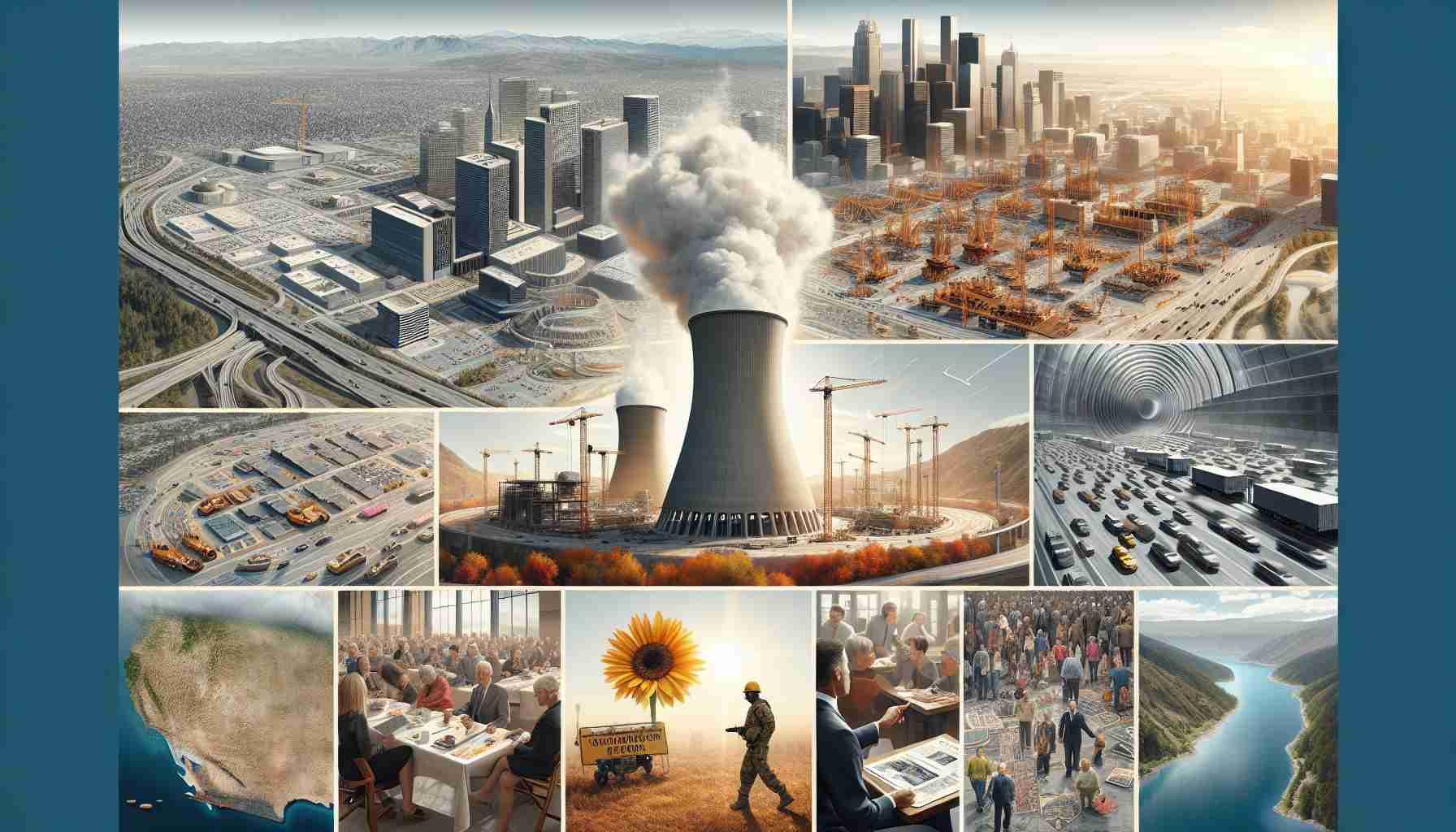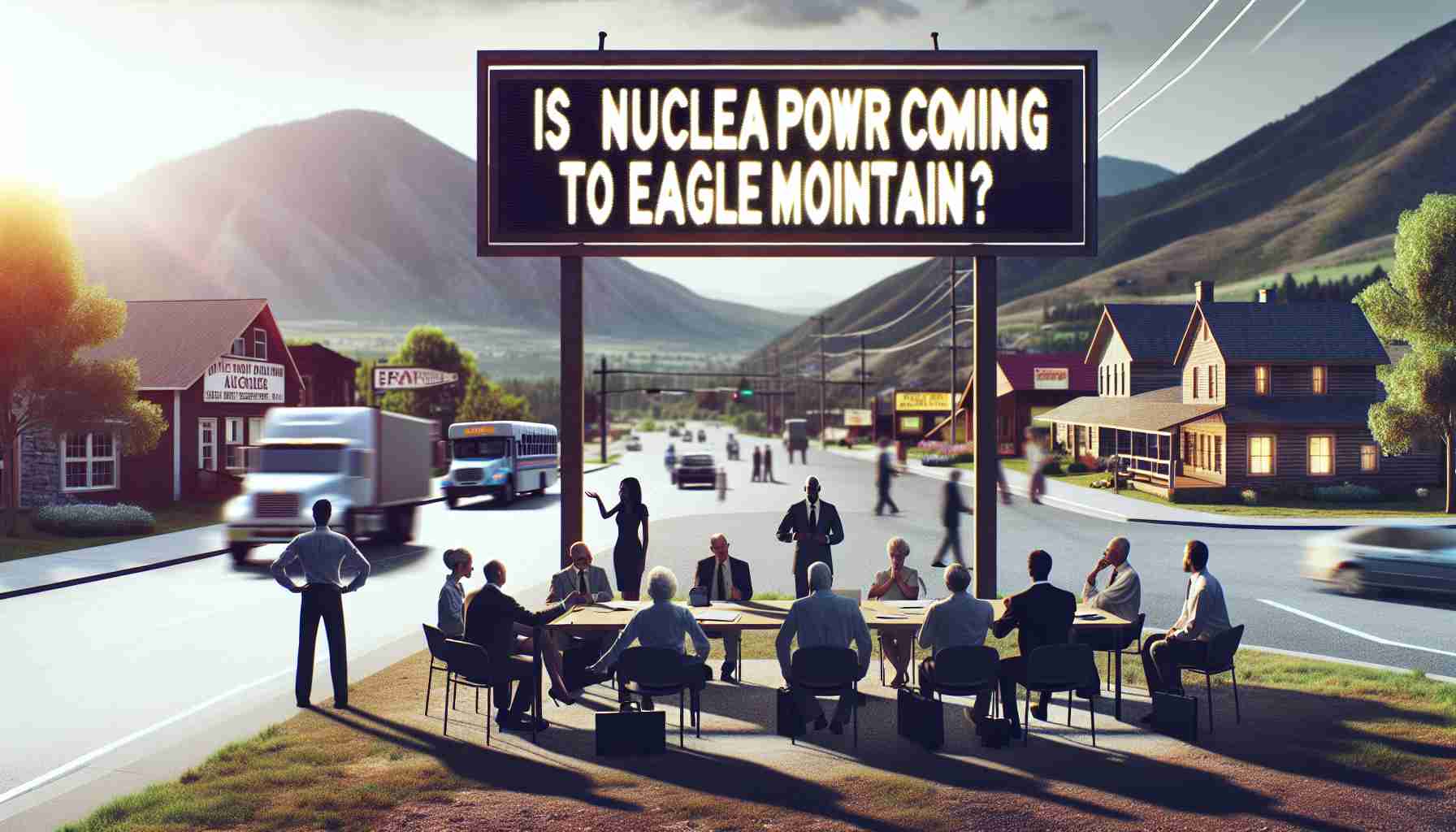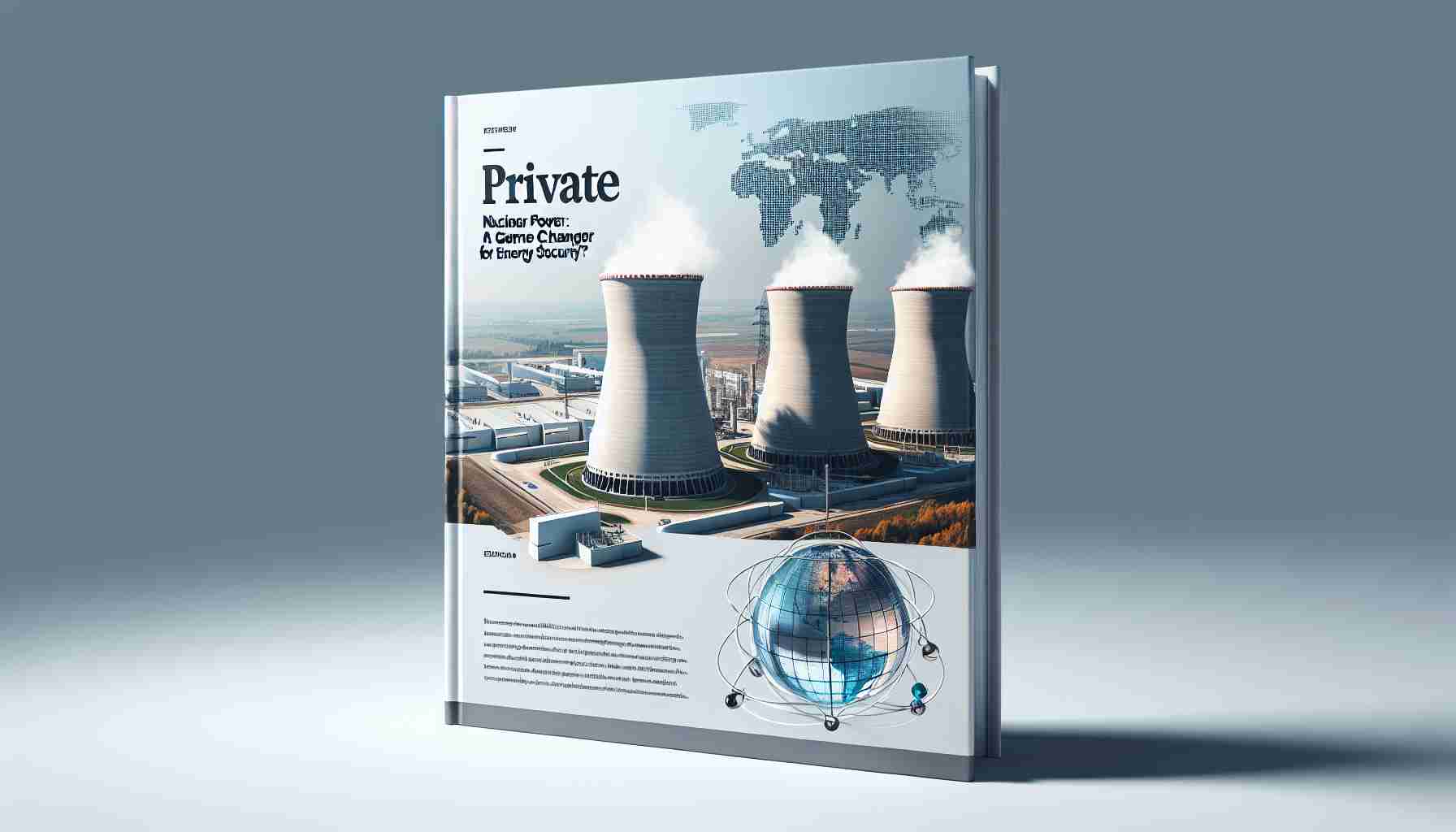The Tri-Cities area is rallying together in an ambitious effort to attract a significant nuclear supply chain manufacturer. A gathering at the Richland City Council saw community leaders, economic advocates, and skilled tradespeople come together, showcasing a shared vision for the future.
The proposal from Washington Energy LLC is a potential game-changer, with projections indicating an influx of $3 billion in development and the creation of thousands of jobs. This initiative is set to enhance and diversify the local economy, drawing from the region’s rich history and expertise in nuclear energy. The community’s deep-rooted legacy—stretching back to the historic Manhattan Project—provides a solid foundation for nurturing the workforce essential for advanced nuclear technologies.
Amidst the excitement, local educational institutions are stepping up, with Columbia Basin College collaborating with Energy Northwest to establish a new training center aimed at preparing the next generation of energy professionals. Moreover, leaders are working on a substantial $160 million grant to boost the regional nuclear and fusion supply chain, focusing on research, workforce development, and community collaboration.
In addition to nuclear endeavors, the Tri-Cities is exploring various clean energy projects, such as small modular reactors and zero-carbon fertilizer plants. This proactive approach emphasizes teamwork and strategic alliances to secure the area’s position as a clean energy powerhouse, promising lasting economic benefits for the community. Together, the Tri-Cities is positioned for a bright and sustainable future.
Implications of the Tri-Cities Nuclear Supply Chain Initiative
The Tri-Cities region’s initiative to attract a major nuclear supply chain manufacturer represents a pivotal moment not only for local economic revitalization but also for broader societal shifts. The anticipated $3 billion investment and thousands of new jobs will not only diversify the local economy but also signal a renewed commitment to advanced energy technologies amidst global discussions about climate change and sustainable energy. As countries grapple with the challenges posed by fossil fuels, nuclear energy emerges as a crucial player in the quest for clean and reliable power.
The implications extend far beyond economic benefits. Emphasizing nuclear technology may reshape cultural attitudes towards energy production, prompting a reassessment of nuclear power’s role in a sustainable future. Educational collaborations, such as those between Columbia Basin College and Energy Northwest, are crucial for cultivating a workforce adept in cutting-edge energy technologies, fostering not just local skill development but also innovation on a national scale.
On an environmental front, the focus on nuclear energy must be balanced with robust environmental stewardship. If managed responsibly, the growth of small modular reactors and zero-carbon projects could minimize the carbon footprint of energy production, aligning with global efforts to reduce greenhouse gas emissions significantly.
With active investment in research and workforce initiatives, the Tri-Cities’ approach could serve as a model for other regions striving to transition toward sustainable energy solutions, ultimately contributing to the global economy’s shift towards low-carbon alternatives.
Tri-Cities Poised for Transformation: The Nuclear Supply Chain Revolution
The Rise of Nuclear Manufacturing in the Tri-Cities Area
The Tri-Cities region is making significant strides towards attracting a major nuclear supply chain manufacturer, with local leaders and organizations collaborating to create a forward-thinking economic landscape. This initiative is centered around a proposal from Washington Energy LLC, which promises a staggering $3 billion in development and the potential creation of thousands of jobs. This movement not only aims to enhance the local economy but also leverages the area’s longstanding expertise in nuclear energy, rooted in the legacy of the Manhattan Project.
Key Features of the Initiative
– Economic Impact: The development is projected to inject $3 billion into the local economy, fostering long-term growth and job creation.
– Training and Workforce Development: The Tri-Cities are set to benefit from a new training center developed through a collaboration between Columbia Basin College and Energy Northwest. This center will prepare local students and skilled workers to meet the demands of advanced nuclear technologies.
– Grant Opportunities: The community is actively pursuing a $160 million grant aimed at enhancing the nuclear and fusion supply chain. This funding will focus on crucial areas such as research, workforce training, and an increase in community collaboration.
Clean Energy Innovations
In addition to nuclear advancements, the Tri-Cities area is not limiting its clean energy initiatives to one sector. Local leaders are also investigating the implementation of small modular reactors and zero-carbon fertilizer plants. These projects align with broader efforts to position the region as a leader in clean energy solutions, emphasizing sustainability and environmental responsibility.
# Pros and Cons of the Nuclear Supply Chain Development
Pros:
– Significant economic investment and job creation
– Leveraging local expertise in nuclear technology
– Establishing the region as a clean energy leader
Cons:
– Public concerns regarding nuclear safety and environmental impact
– Potential resistance from local communities during planning and implementation phases
Use Cases for Emerging Nuclear Technology
The focus on advanced nuclear technologies presents numerous opportunities:
– Energy Production: Sustainable energy generation through advanced nuclear reactors could power homes and businesses with minimal environmental impact.
– Research and Development: Enhanced R&D capabilities within local institutions could foster innovation in energy technologies.
– Workforce Training: The new training center will provide certification and hands-on experience to prepare students for careers in nuclear energy and related fields.
Compatibility and Limitations
The expansion of the nuclear supply chain will need to work in harmony with existing energy infrastructure. While small modular reactors offer a flexible solution for energy production, their deployment must be balanced with local regulatory frameworks and community acceptance. Additionally, ongoing discussions about nuclear waste management will be crucial to achieving long-term sustainability.
Market Analysis and Future Predictions
As the race for clean energy intensifies, the Tri-Cities’ commitment to nuclear and clean technology places it at a competitive advantage. The potential $3 billion investment in the region could catalyze further investments from private sectors, reinforcing the area’s status as an attractive location for energy manufacturers. Predictions suggest that sustained investments in education and research will result in a highly skilled workforce ready to tackle future energy challenges.
In conclusion, the Tri-Cities area is not only envisioning a robust nuclear supply chain but is actively taking the necessary steps to realize this vision. Through collaboration, investment in education, and commitment to clean energy, the region is well on its way to securing a sustainable and prosperous future.
For further insights on clean energy advancements, visit Clean Energy.
The source of the article is from the blog bitperfect.pe


